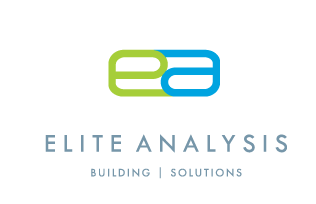A home inspection, performed by a licensed home inspector, is a visual examination of the structure and components of a home. Its purpose is to identify any defects, safety issues or structural items that are not performing correctly and delineate which ones may need to be remediated or repaired before a home buyer closes on a house.
The home inspection is not necessarily technically exhaustive, but rather is a snapshot of the overall condition of a home at the time of inspection. It is limited to the conditions in the parts of the home that an inspector can actually see and does not guarantee that problems may not exist in areas that are permanently hidden, or in parts of the home that are inaccessible to the inspector.
Why is a Home Inspection Important?
A home inspection is important because it outlines any potential problems that can affect the price of a home, or even if the sale should proceed as planned. Many times, the results of a home inspection are grounds for re-negotiating a home’s purchase price, or for determining whether the buyer or seller will be responsible for any structural or cosmetic repairs. Unless the house is an admitted “fixer-upper,” no home purchaser should ever forgo the prerequisite of a home inspection.
Another reason that a general home inspection is worthwhile is because the inspector is trained to recognize evidence of potential problems that may be serious enough to require further assessment by a specialist, for example, a plumber, an electrician, a contractor, or even a structural engineer. In addition, certain hazardous materials, such as asbestos, mold or other environmentally dangerous elements can be recognized during a general home inspection so that they may subsequently be ameliorated by another, more qualified, professional.
What a Home Inspection Includes
A home inspector’s report will generally review the following aspects and conditions:
- The heating and/or air conditioning system
- The interior plumbing and sewer lines
- The electrical system
- The roof and attic
- Exterior and interior walls, ceilings and floors
- Windows and doors
- The home’s foundation, lot, structural components, and basement
- Any appliances included in the home sale
Home Inspection Limitations
A home inspection is not a guarantee against future problems. For example, even the most experienced home inspector cannot predict if, or when, a heating or air conditioning system may break down. The inspector can only give a general assessment of the component’s condition at the time of the inspection.
In addition, the American Society of Home Inspectors (ASHI) has promulgated a list of general limitations and exclusions for home inspectors. For example, a home inspector is not required to determine:
- The condition of any system or component that is not readily accessible
- The remaining life expectancy of any system or component
- The causes of any reported condition or deficiency
- The methods, materials or costs of any corrections
- Compliance with any local building codes, ordinances, etc.
- The operating costs of any systems or components
The home inspector is not required to offer or perform:
- Any engineering services
- Any work in any trade other than home inspection
- Any guarantees or warranties of any kind
- Any act or service contrary to law
Further, they are not required to inspect:
- Any area that is likely to be dangerous
- Any underground items such as storage tanks, etc.
- Any items that are not installed
- Any detached structures other than garages or carports
- Any under-floor crawl spaces or attics that are not readily accessible, though most are accessible
Also, a home inspection is not an appraisal of the home’s value, whether or not a buyer should purchase the home, or what the selling price should be. These are issues that are out of the inspector’s purview. While a home inspection may reveal certain flaws or problems that may require attention, such as the age and relative condition of roof shingles, and whether or not they should be replaced, for example, it is entirely up to the buyer and seller to negotiate any repairs or changes in pricing.
Remember, a general home inspection is, by definition, a subjective judgment made by an outside party. The inspection is merely a visual snapshot of the condition of the property at the time of inspection. It is valuable because it is an unbiased and professional assessment of the home’s structure and components and it is inherently useful as an informative tool for the home buyer – nothing more.

